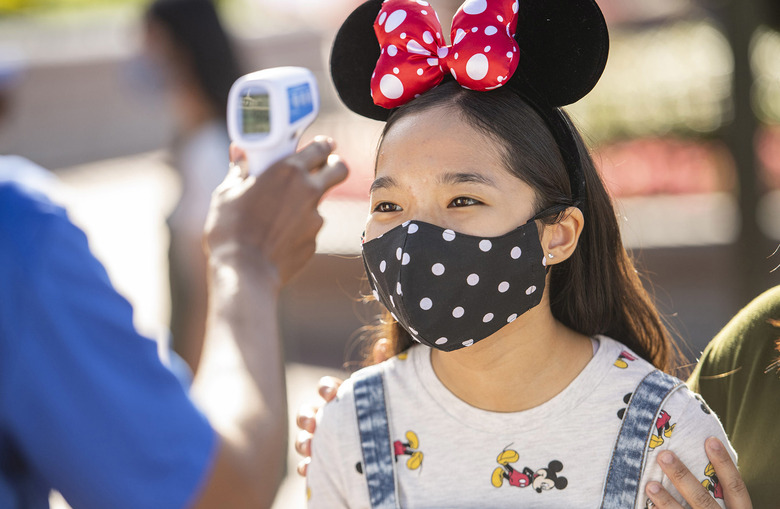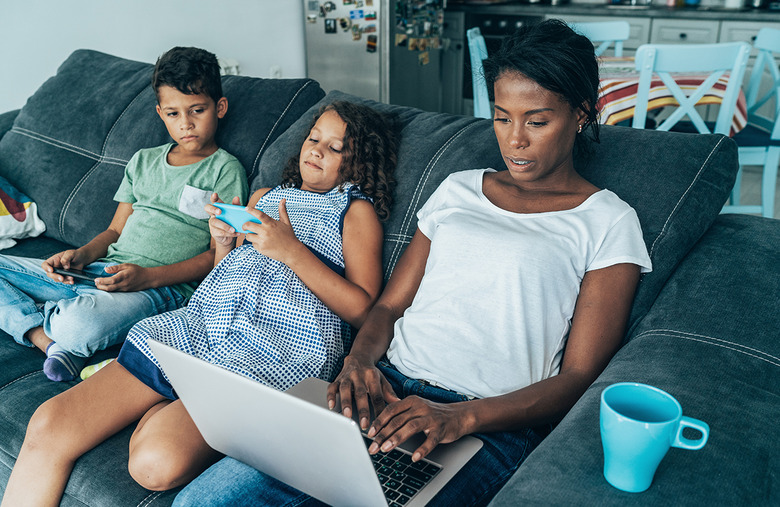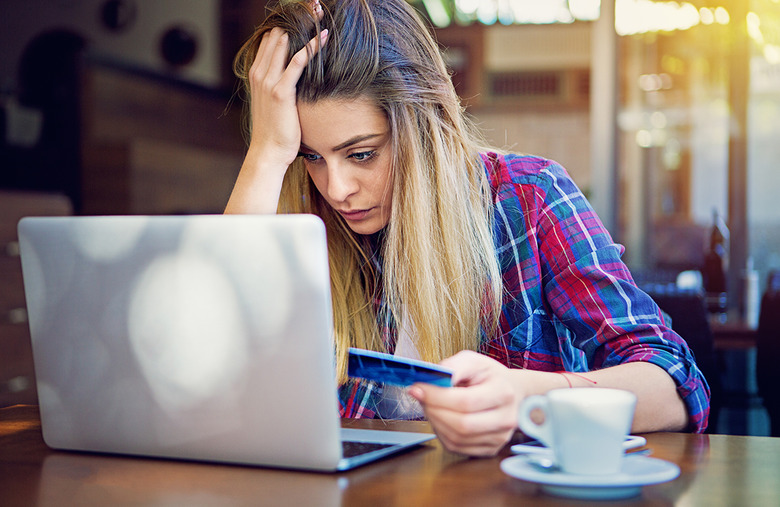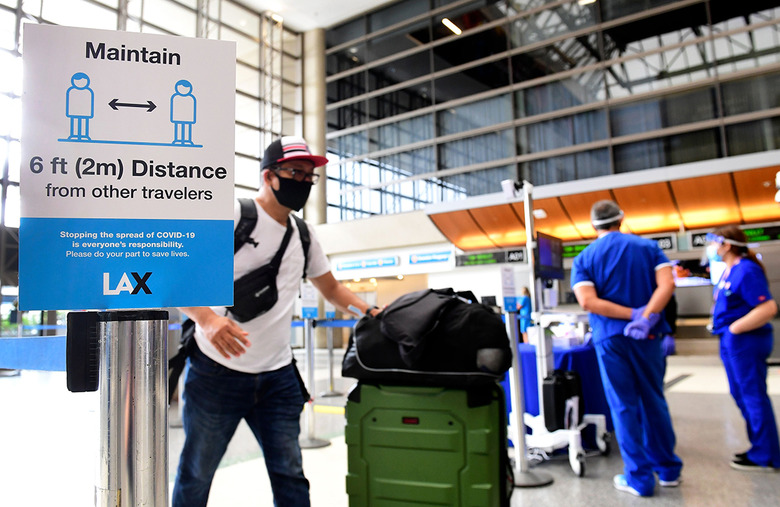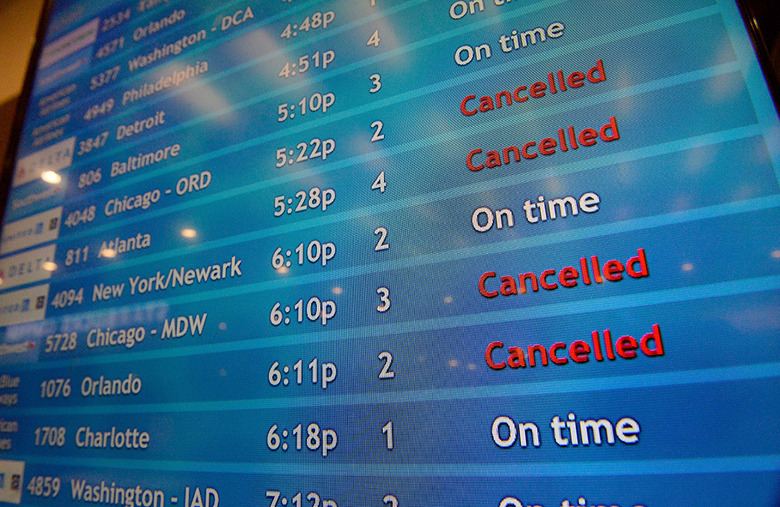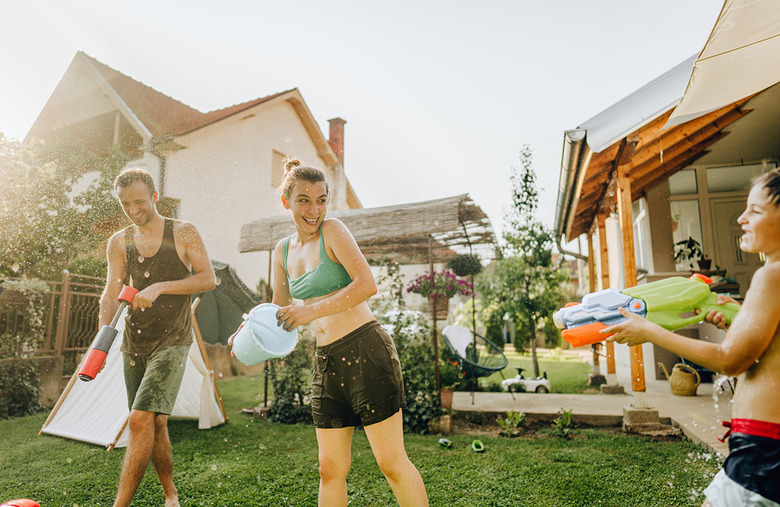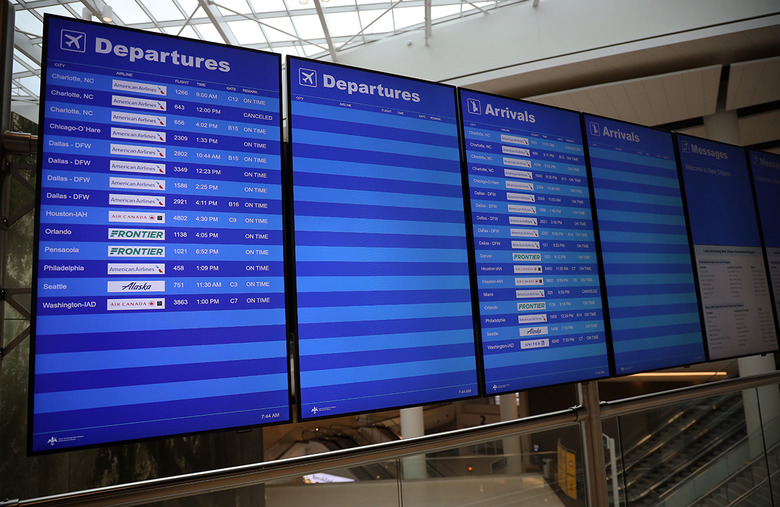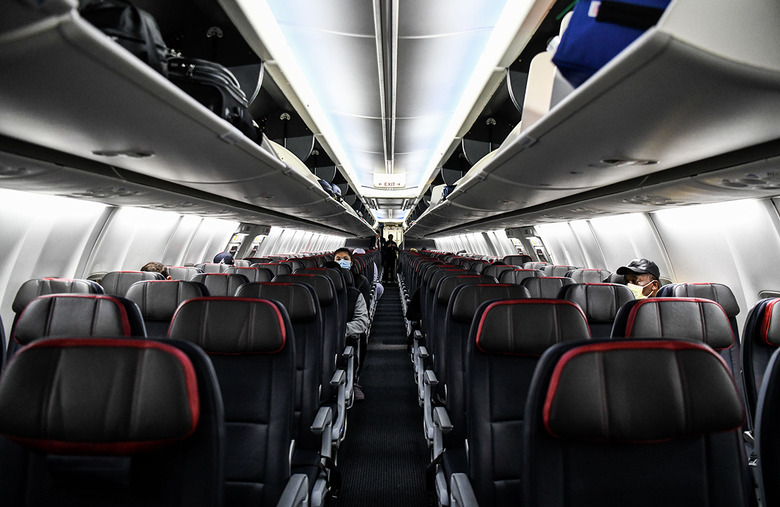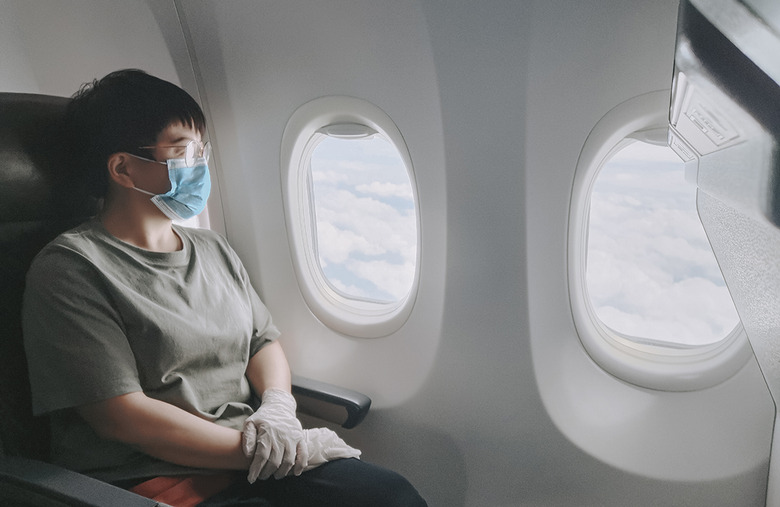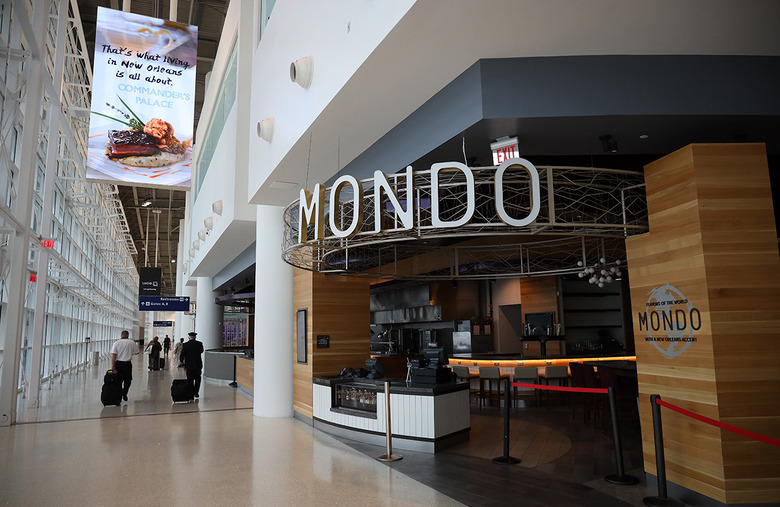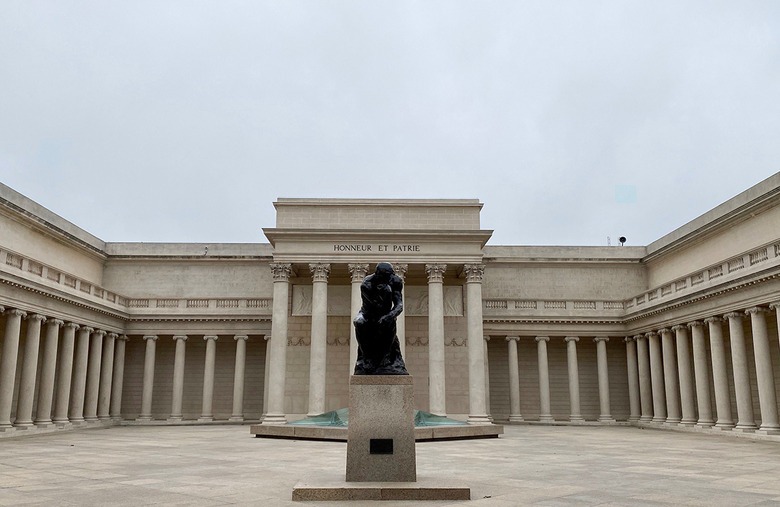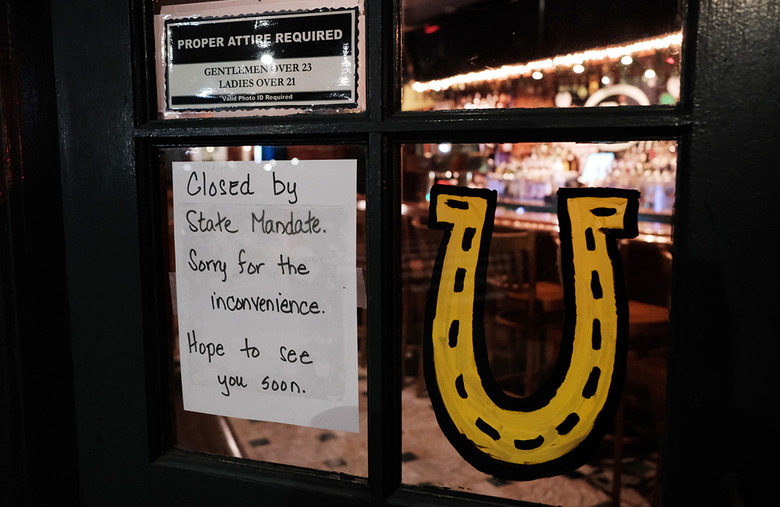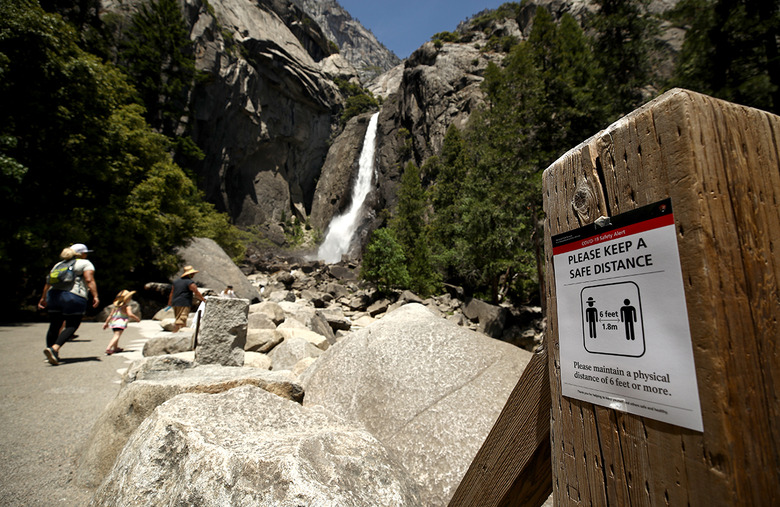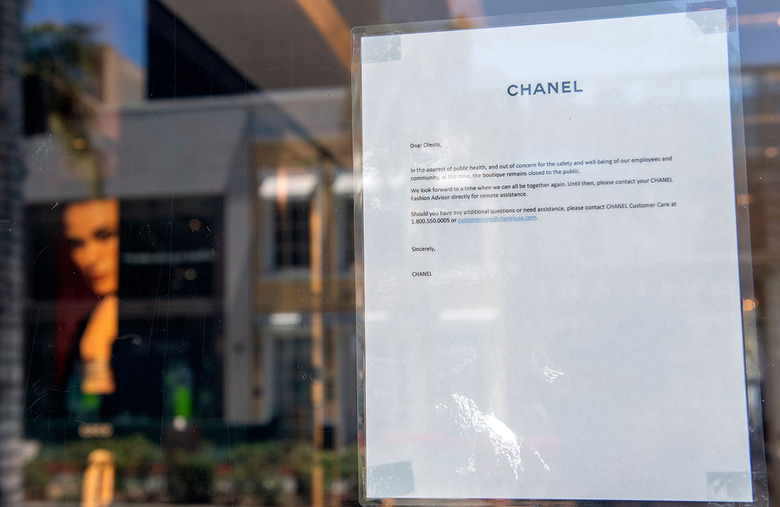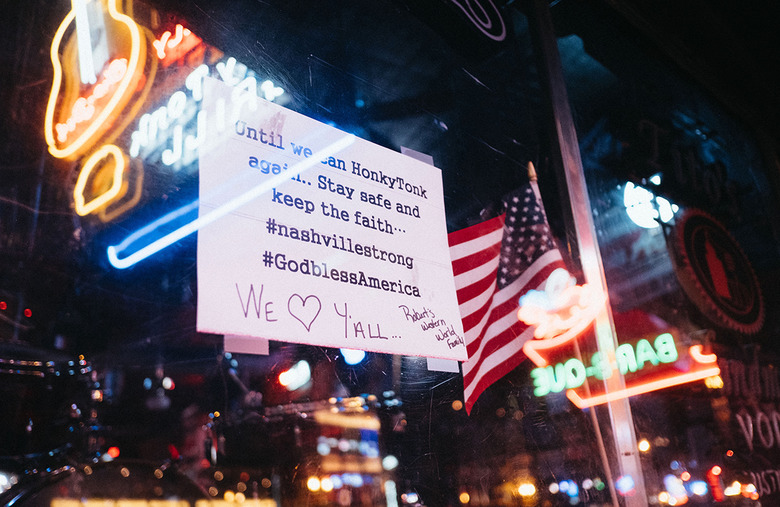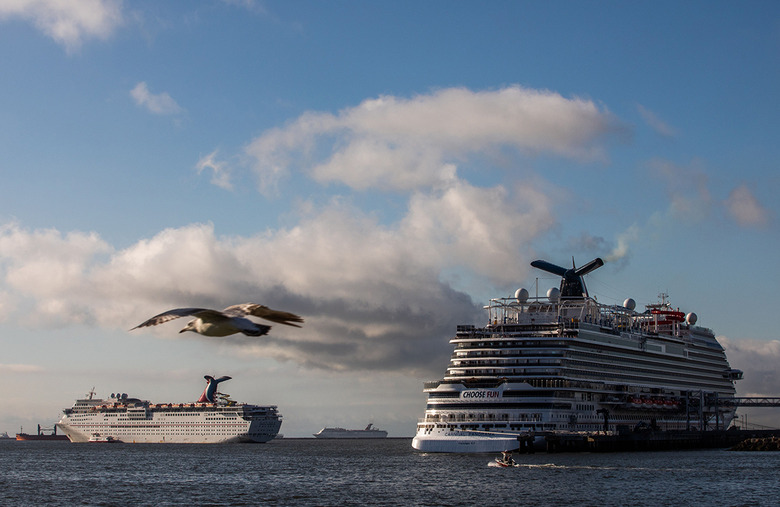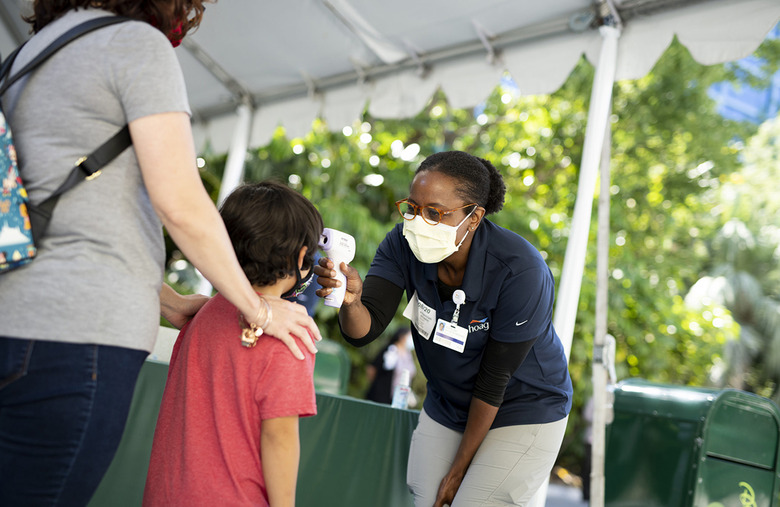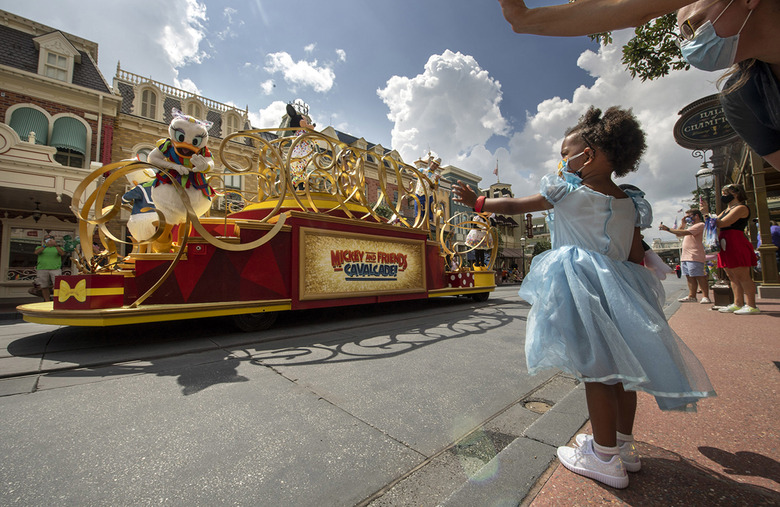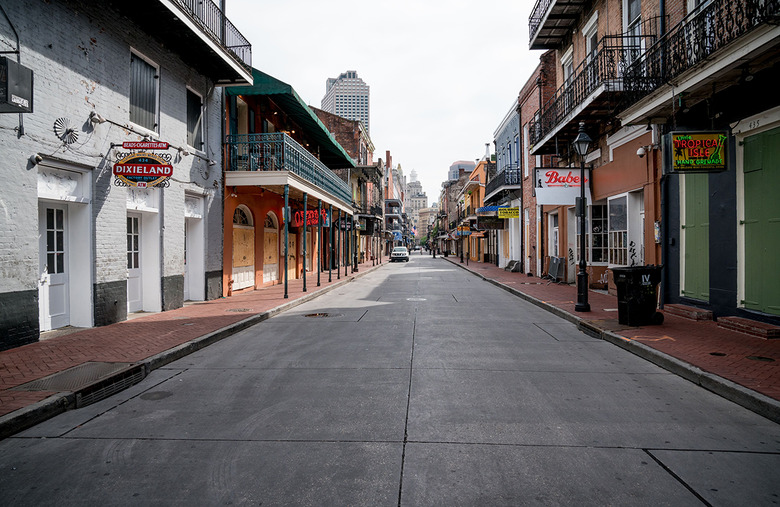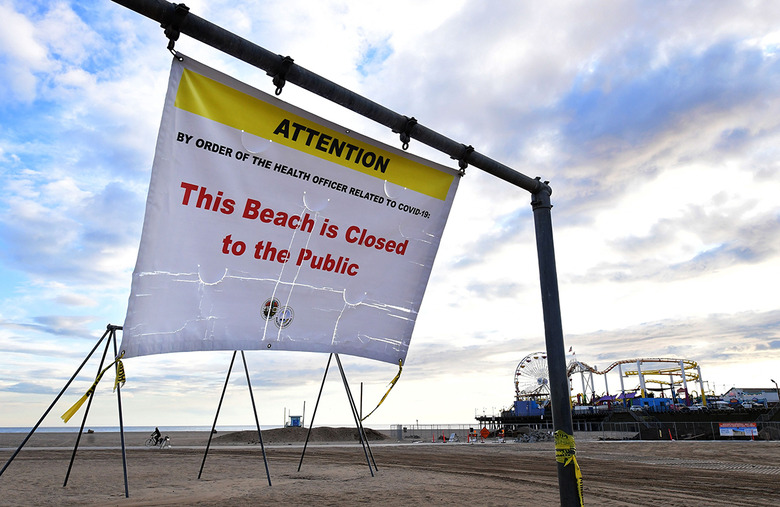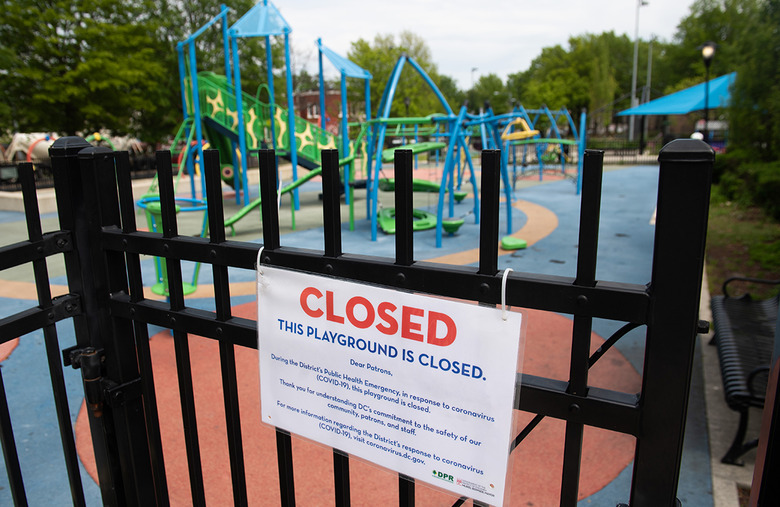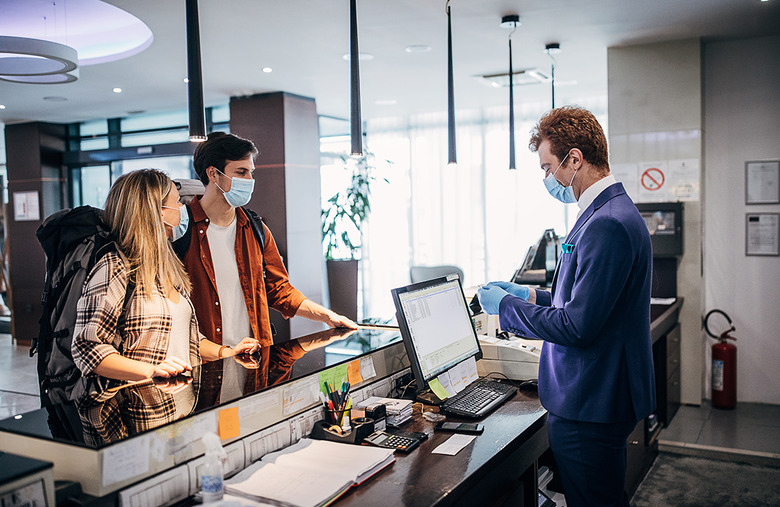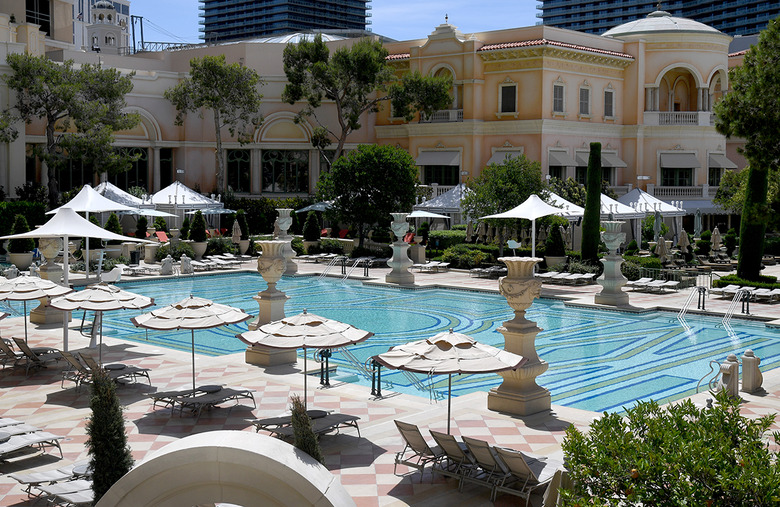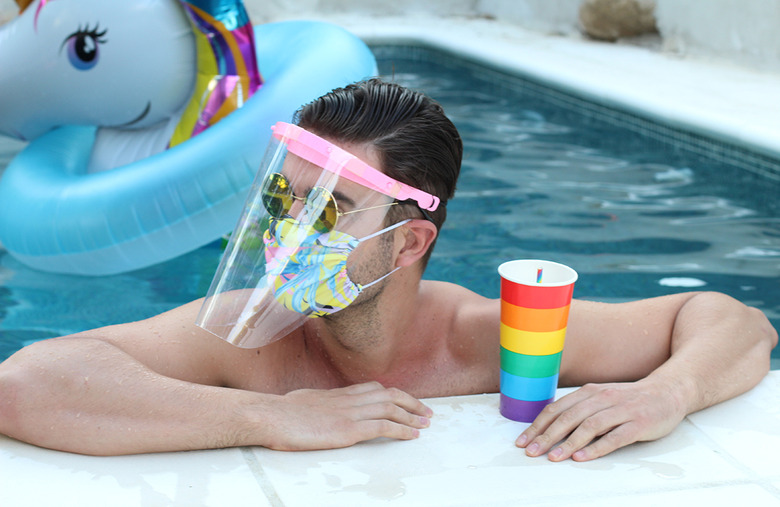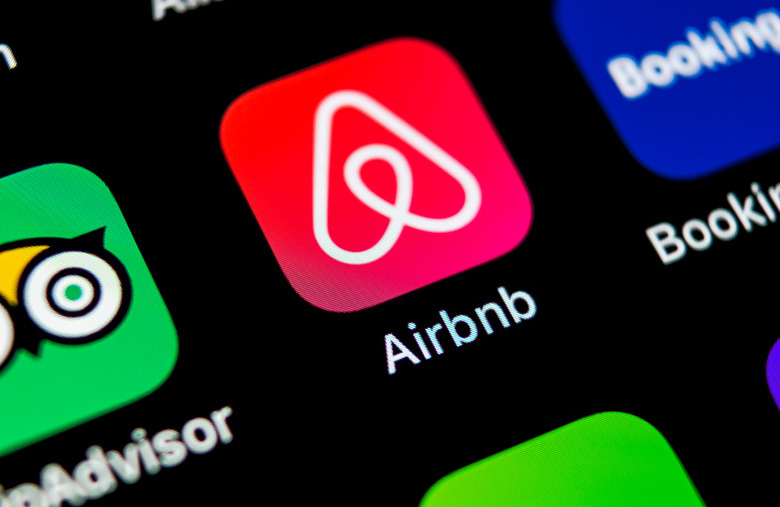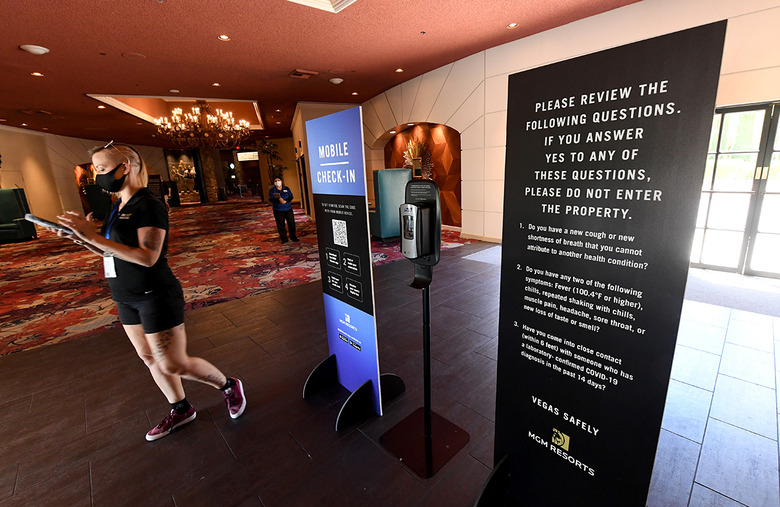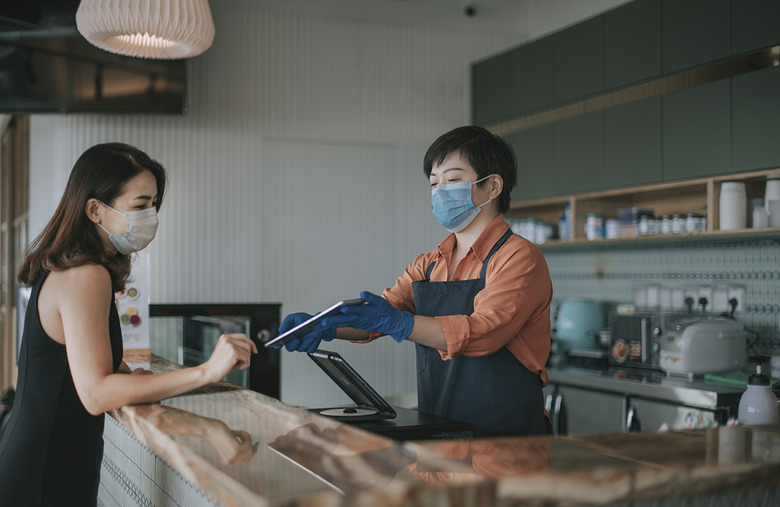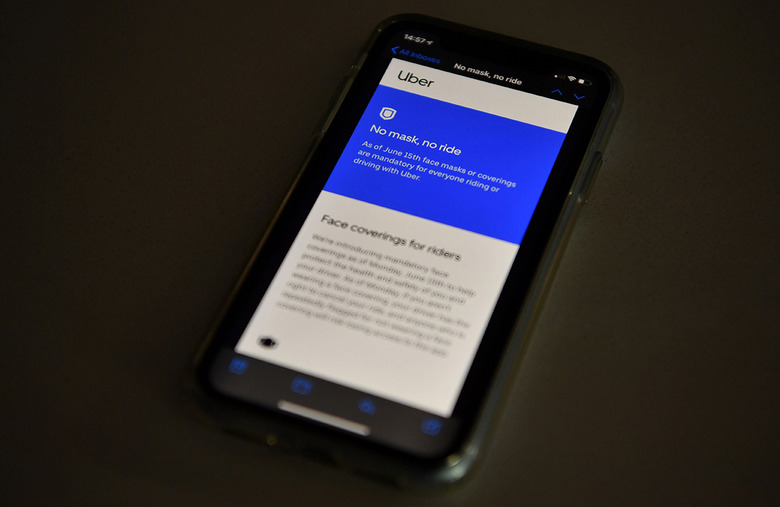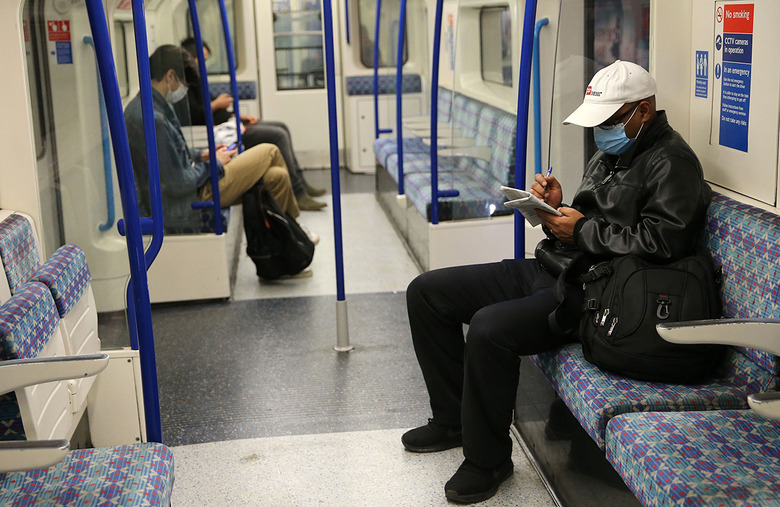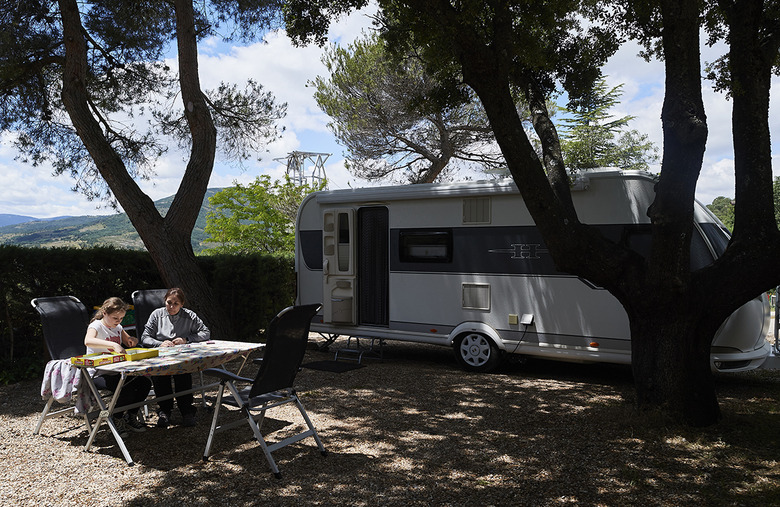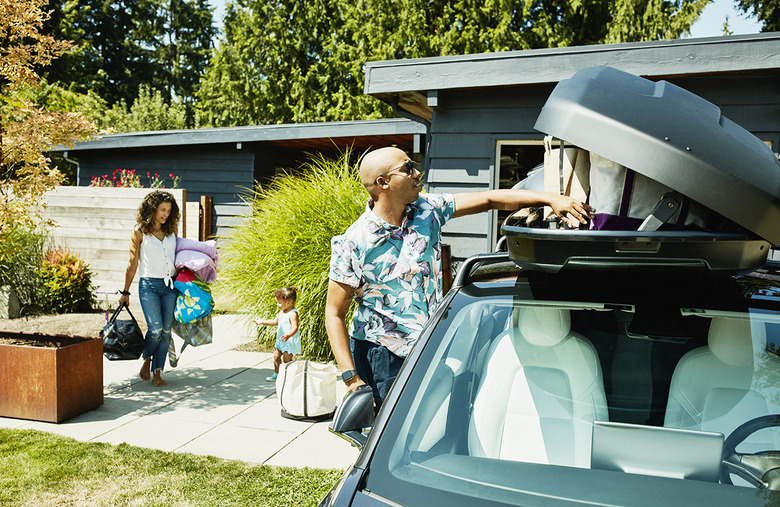The Great Travel Depression: How Things Have Changed Since Coronavirus
Since the beginning of coronavirus shutdowns and quarantine measures in March, the U.S. travel economy has lost more than $320 billion, according to the U.S. Travel Association. When it comes to hotels, occupancy rates are expected to be lower this year than they were during the Great Depression in 1933. Though this doesn't bode well for the travel and hospitality industries, all hope is not lost.
Hotels are taking guests, leisure activities are coming back, restaurants are once again welcoming diners, and amusement parks and museums are in the phases of reopening. When things "return to normal," going on vacation and traveling is the top purchase Americans will make, according to a Harris Poll on the effects of COVID-19 in the U.S. If you do decide to take a trip soon, here are some major ways the pandemic has changed travel.
It has put a damper on spirits
There's no denying that one of the first things that has changed since the beginning of the pandemic is our outlook toward the future. Vacations are meant to be a relaxing getaway, a time to destress. Without a trip to look forward to, many people are having to find other ways to cope with coronavirus anxiety.
It has affected bank accounts
In the beginning, many flights and trips were being canceled due to travel bans. There were a lot of questions about flight refund policies and other travel concerns. Now, many people with canceled trips are still waiting on refunds or reeling from the fact that they were only given credits or even lost out on the money used to book hotels, flights and other events.
Travel restrictions have been put in place
During much of March and April, many states were under quarantine and strict travel bans were put in place for national and international travel. Borders within the country are reopening now, but many states and cities still have a travel advisory that asks travelers to quarantine for 14 days after visiting states that have an increasing rate of coronavirus. Check your state's or city's website for a full list of which places require the two-week quarantine.
Flights are being canceled and you have fewer options
You may be swayed by cheap airfare to buy a ticket somewhere right now, but just because you get a flight, that doesn't mean it won't be canceled closer to the date. If your flight isn't full enough, your airline might cancel it. In a study done by the U.S. Travel Association at the end of July, TSA screenings were 74% lower than they were compared to the same week last year. There are also fewer flights throughout the day because of travel restrictions and fewer people traveling.
International trips have become staycations
For anyone who booked an international trip and had to cancel it, chances are that because of travel restrictions and overall uncertainty about the virus, those trips have either turned into road trips in the U.S. or staycations at home. If you set up your backyard to look like a tropical island getaway, you can still relax and find your own slice of paradise.
Airlines have lost major money
In April 2019, airlines used 1.5 billion gallons of fuel, according to the Bureau of Transportation. In April 2020, airlines used just 447 million gallons. In the first quarter of 2020, the Bureau of Transportation noted an after-tax $5.2 billion loss in revenue. This is down $7.2 billion from the same quarter last year.
There are social distancing restrictions when flying
Airlines are implementing various levels of social distancing for crew members and passengers. American Airlines is offering contactless check-in and creating space for physical distancing in the check-in, security, lounge and boarding areas. However, they are not requiring social distancing once on board. For United Airlines flights, social distancing is being promoted at check-in but isn't required on board except for when deplaning, which will happen five rows at a time. Southwest Airlines is encouraging physical distancing in the gate areas and is keeping middle seats empty on flights through at least Oct. 31, 2020. Snack and drink services may also be limited across airlines to prevent contact between travelers and flight attendants.
Masks are required on planes
Though they have different protocols for social distancing, major airlines like Southwest, American and United are all requiring face masks in boarding areas and on flights. The only exception is when you are taking a sip of your drink or eating a snack.
Restaurants in airports might be closed
A cup of coffee and a bagel to get you through an early flight or a glass of wine and a bowl of pasta during a layover may not be available. If you're hoping for some of your go-to treats at airports, check their concessions before flying. Some restaurants and cafes might be temporarily closed or have limited hours.
Museums might not be open to the public
A big part of traveling is to take in the history, culture and noteworthy establishments in the towns you're visiting. Before getting your hopes up about visiting a cool museum, be sure to check if they're open. If they are open, you might have to book a time slot you'll plan to visit instead of having the freedom to show up whenever. Not to worry though, you may still be able to take free online tours of popular museums and landmarks.
Restaurants might be closed
If you're planning a trip just to get out of town and eat at a restaurant again, you may want to think twice. If your hometown has a lot of closed restaurants, it could be the case anywhere you go. And just because you made reservations somewhere doesn't mean the reservation won't get canceled — reopened restaurants have been going through temporary closures if one of their staff members feels symptoms. They won't reopen until everyone on the staff has received test results and the establishment has undergone intense cleaning.
There is social distancing in state and national parks
National Parks have long welcomed adventurers or those looking for some time outdoors. They were not exempt from closings during quarantine periods, though. Now that they are opening back up, it's important to check the National Park Service or your state's site to check on their policies or recommended coronavirus etiquette such as social distancing or having a mask ready for tourist-dense areas.
Shops could be closed
Shopping is fun on vacation, but similar to restaurants, not all shops are going to be open. If an employee has experienced symptoms of the virus, the store might close for cleaning and employee testing. Other stores might be permanently or temporarily closed.
Nightlife has changed
Vacation means you don't have to set early alarms for work the next day, so why not party till the sun comes up? Well unfortunately many bars are still temporarily closed or are closing much earlier than the 2 a.m. last call you might have been used to before the pandemic.
Cruises are canceled
If land vacations aren't really your thing and you'd rather set sail for a getaway, you're going to have to wait. Cruise lines such as Carnival and Royal Caribbean have paused all sailing until the safety of guests and crew can be ensured.
There are temperature screenings at Walt Disney World theme parks
If you rebooked your Disney World vacation, it's vital to know about all the theme parks' coronavirus changes. Along with a theme park reservation and a face covering for everyone in your party except for those under the age of 2, expect a temperature screening at the entrance. Anyone with a temperature of 100.4 or higher will not be allowed to enter the park. Because security screening has also been modified to help limit person-to-person contact, it is recommended that you pack everything in clear bags.
Character greetings and parades are on pause at Disney
Not even the magic of Disney can prevent the spread of coronavirus, so social distancing must be practiced at the parks. To make social distancing easier, Disney parks are pausing parades, nighttime spectaculars and character greetings. However, the characters will still be in the parks to wave to from a distance.
Concerts have been canceled or postponed
If the website you've purchased concert tickets or movie festival passes from hasn't already emailed you about how to get a refund or whether your ticket purchase will be credited for next year, then you should look into it. For anyone who had plans to travel outside the state for a concert or festival, if the event hasn't already been canceled, it could very well be postponed into next year.
Beaches might be closed or require social distancing
This one gives water safety a whole new meaning. Depending on which state you're traveling to, the beaches could have some mandates in place that you're not quite used to. Even though you're outdoors, you might be required to wear a mask, to only attend if you're going in smaller groups and to head home earlier than you're used to due to shorter hours. Certain beaches in Florida, for example, which experienced a spike in cases, have closed public access or are implementing fines for groups who aren't social distancing.
Parks might be closed
Taking a road trip with kids might mean making a few stops along the way to play at parks or cool down in playground sprinkler systems. Depending on where you're traveling to, city playgrounds might still be closed or in the beginning phases of reopening. Before getting your kid's hopes up, check city park district websites to make sure facilities are open. Otherwise, there are plenty of other activities to keep kids busy outdoors.
There are lower hotel occupancy rates
Don't expect to run into too many other guests or staff members when staying at a hotel on your next trip. Since February, hotels have lost more than $46 billion in room revenue and hotel workers have been furloughed or laid off at unprecedented rates. The occupancy rate forecasted for the rest of 2020 is lower than it was during the Great Depression in 1933, according to the American Hotel and Lodging Association.
Some hotel amenities may be suspended
If the hotel you are staying at has restaurants, bars, pool areas and other communal amenities, there is a chance those amenities will be closed or have restrictions. Restaurants may seat fewer guests to accommodate for social distancing, bars might be closed and pools could run at limited capacity and for shorter time periods than usual.
Face masks could be required in pool areas
Hotel groups like Hilton are requiring all guests to wear masks in all indoor public areas. Face coverings in pool areas could be dependent upon the hotel you are staying at or the hotel and lodging association for the state where you are staying. Some rules require you to wear a mask when you're out of the pool, but you may take it off when you are swimming. Physical distancing should also be enforced in pool areas.
You might have to cancel your rental
Rental websites like Airbnb and Vrbo have updated their cancellation policies in light of the pandemic. For example, Airbnb has an extenuating circumstances policy that might make your stay eligible for cancellation without charges. If you have tested positive for the virus or if the area you're staying in has enforced travel restrictions, you can cancel your Airbnb reservation free of charge if you booked your stay on or before March 14, 2020, or have a check-in date between March 14, 2020, and Sept. 15, 2020.
There's reduced contact or contactless check-in
Hotel groups like Marriott and IHG are working hard to ensure your stay is as comfortable and clean as can be. Part of making sure that you and hotel staff are at a lower risk of coronavirus infection is to reduce contact at check-in or to make check-in completely contact-free. For example, in over 3,000 Marriott hotels, your phone can be used to check in and access your room rather than using a key card. You can also order room service via mobile app so you don't have to use the phone in your hotel room, which could be considered a high-touch area for guests.
Tipping should be higher
Essential workers have been braving the pandemic since the start — delivering your meals, groceries and online quarantine purchases — and need to be tipped accordingly. When you're on vacation, it's often hotel cleaning crews and restaurant staff that are there to make your visits as safe and enjoyable as possible. Tipping higher for the efforts of these essential workers is a kind gesture that goes a long way.
Uber and Lyft might require face masks
In a COVID update on the U.S. Uber blog, the company states that anyone who uses Uber's platform — riders, drivers and delivery people — will be required to wear a face mask. Drivers can cancel their trip if a rider is not wearing a mask. The policy is in effect indefinitely and applies to many countries besides America, including Canada, Mexico, India, France and most other countries throughout Europe, the Middle East and Africa. Uber will reassess this policy according to changes from global health experts. Similarly, Lyft is requiring face masks and the front passenger seat must be left empty.
There are public transportation adjustments
We've wondered how shopping malls will look after coronavirus and how gyms will accommodate physical distancing, but what about public transportation? In many cities, station and vehicle cleaning and disinfecting are happening more frequently and in more detail. Many services like New York City's MTA are providing hand sanitizer stations as well as floor decals that promote social distancing. If you're visiting anywhere that has high foot traffic on public transportation, it's recommended you wear a mask, wash your hands when you get to your destination and try to travel during non-peak times.
RV rentals are becoming more popular
There are some pretty spectacular hotels around the world, but with international travels on pause, many Americans are hitting the road in RVs. On search engines like Google, interest in RV rentals spiked after the pandemic hit. RV rental company RVShare predicts a wave of rentals in particular by people looking to visit reopened iconic national parks and state parks. No matter what park you head to, there are stunning RV resorts and campgrounds to explore across the U.S.
And people are hitting the road again
Taking trips in the U.S. and abroad isn't going to be as uninhibited as it was in the past for the foreseeable future, but that doesn't mean traveling is over for good. Find inspiration for your dream road trip with these 101 breathtakingly beautiful photos of America.
